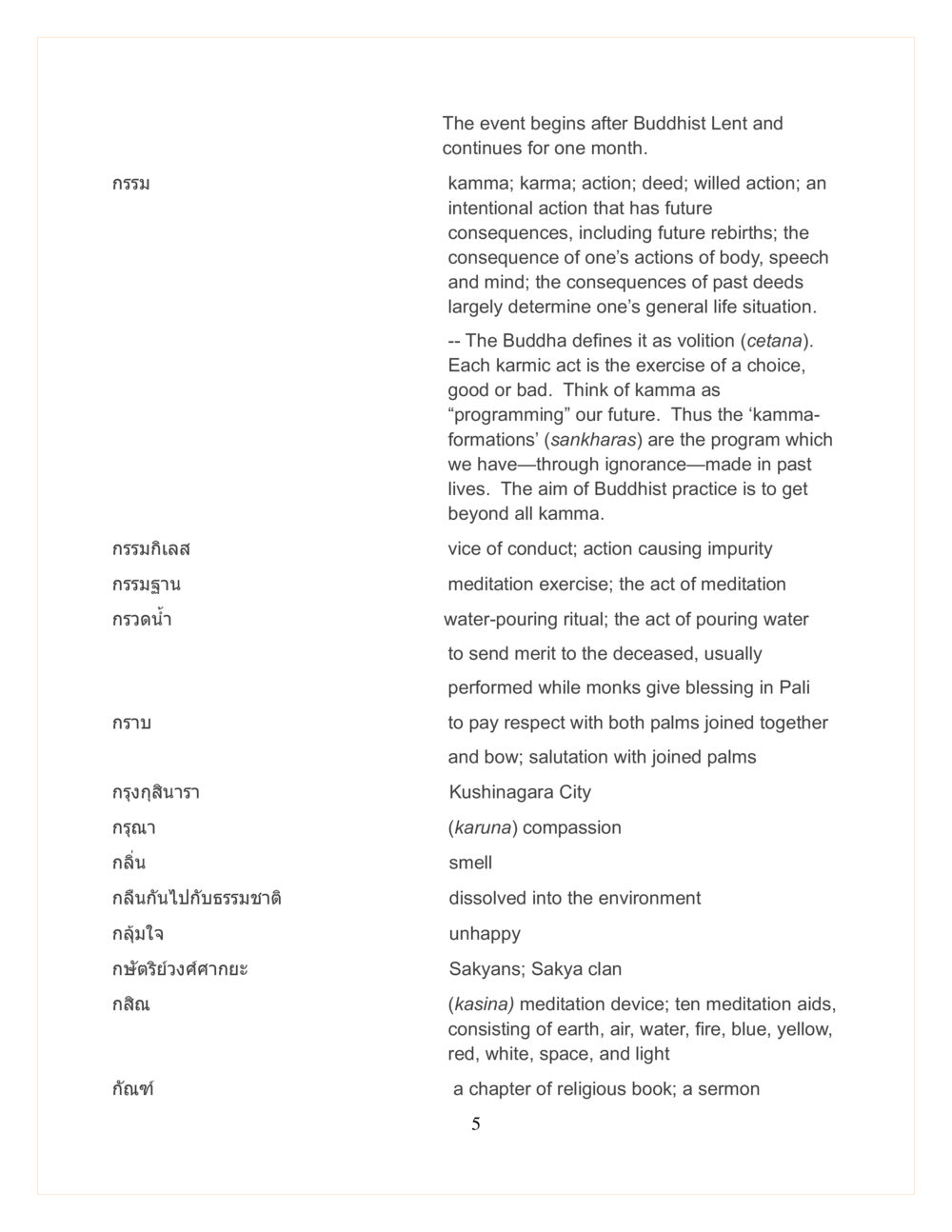Understanding Kamma and Buddhist Practices : หน้า 5/115
DMC Translor’s handbook : หน้า 5/115 Explore the concepts of kamma, meditation, and rituals in Buddhism. Learn how our actions and intentions shape our future.
0 ครั้ง

สรุปเนื้อหา
This text delves into the fundamental concept of kamma (karma) in Buddhism, emphasizing that every intentional action we perform leads to future consequences. The Buddha defines kamma as volition (cetana), stressing the importance of our choices—both good and bad—as they program our future. It also discusses practices like meditation (กรรมฐาน) and rituals such as the water-pouring ceremony (กรวดน้ำ), which are integral to Buddhist traditions. The integration of compassion (กรุณา) and respect (กราบ) is highlighted as essential virtues in these practices. The ultimate goal of Buddhist practice is to transcend the effects of kamma, guiding practitioners towards enlightenment and a deeper understanding of their actions. Each element mentioned, from meditation devices (กลิ่น) to the Sakyans (ภะยัสดงศคาย), reflects the rich tapestry of beliefs and rituals that characterize Buddhist teachings, deepening the connection between our actions and the cycles of life.
หัวข้อประเด็น
-Kamma and its significance
-Meditation practices in Buddhism
-Water-pouring rituals
-Compassion in Buddhist teachings
-Impact of actions on future outcomes
-Respectful gestures in Buddhist culture



















































































































